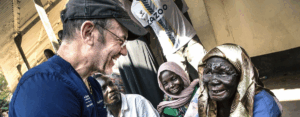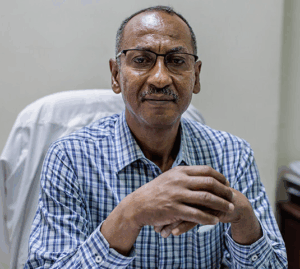Epidemiologist Nabarun Dasgupta combines molecular analysis with grassroots collaboration to reduce drug overdose deaths, making naloxone accessible and street drug data transparent to save thousands of lives.
Nabarun Dasgupta, an epidemiologist at the University of North Carolina at Chapel Hill (UNC), has spent years examining drug overdose data with unwavering focus. In 2024, that dedication revealed something unexpected: fatal overdoses were declining across the United States for the first time in decades.
“I was going through [reports] state-by-state and all the graphs kind of pointed downwards,” Dasgupta told NPR, describing the startling reversal of what many had considered an unstoppable crisis. His recognition of this trend, showing deaths declining steadily in many states since 2021, positioned him among the first scientists to detect hope in the nation’s overdose epidemic.
On October 8, 2025, the MacArthur Foundation honored this groundbreaking research with one of its coveted “genius” fellowships, awarding Dasgupta $800,000 to continue his lifesaving work.
Careful Analysis
Dasgupta’s approach integrates rigorous science with deep community trust. His Street Drug Analysis Lab at UNC has completed more than 16,000 analyses of community-donated drug samples, testing them with atomic precision to identify toxic chemicals being mixed into street supplies. The results are posted publicly in an online database, creating an early warning system that helps individuals make informed decisions and enables first responders to prepare appropriate care.
According to Maya Doe-Simkins, co-director of Remedy Alliance, Dasgupta is “connected with people who are generously sharing, back and forth, ideas and innovation and creativity. That’s what sets him apart.” This collaborative method—working directly with people who use drugs and the organizations that support them—distinguishes his research from conventional epidemiology.
Quicker Access
Beyond laboratory analysis, Dasgupta has transformed access to naloxone, the medication that reverses opioid overdoses. In 2020, he co-founded Remedy Alliance/For The People, negotiating with the FDA to revise licensing agreements that had restricted harm reduction organizations from obtaining naloxone. The nonprofit now purchases the antidote directly from pharmaceutical companies and distributes it to over 500 organizations nationwide at little or no cost, having shipped more than 6 million doses.
His earlier work with Project Lazarus in rural Wilkes County, North Carolina, partnered with the state medical board to enable direct naloxone distribution, drastically reducing overdose deaths in that community. Doe-Simkins estimates that “the work that Nab is involved with definitely saves lives, to the tune of tens of thousands of people.”
Compassionate Community Engagement
The work carries profound emotional weight. Dasgupta received news of his MacArthur fellowship immediately after attending a memorial ceremony for Louise Vincent, a colleague and addiction activist who died in August from health complications related to her drug use. “I don’t know if it’s possible to simultaneously cry tears of joy out of one eye and grief out of the other, but that’s what that moment really felt like,” he told NPR.
Despite opposition to harm reduction programs from some quarters—critics claim they enable drug use, though research does not support this—Dasgupta remains committed to the ethical necessity of offering care to vulnerable individuals. “I think harm reduction is a problem-solving strategy, based on the ancient wisdom that all lives have dignity and value, regardless of what they put in their bodies,” he said in his interview with NPR.
With drug overdoses still claiming more than 70,000 American lives annually, his combination of scientific rigor and compassionate community engagement offers a proven path toward reducing preventable deaths.
Watch this video from the MacArthur Foundation about Nabarun Dasgupta and his work:
This summary is based on the following articles:
- Nabarun Dasgupta, from the MacArthur Foundation
- Nabarun Dasgupta wins MacArthur ‘genius grant,’ from The University of North Carolina at Chapel Hill
- Scientist on front lines of overdose crisis receives MacArthur ‘genius’ award, from NPR
Related Articles

A Legacy of Health Equity: Agnes Binagwaho Receives Cameron Award
The Cameron Award, from the RCSI School for Population Health, honors Professor Agnes Binagwaho for her transformative work rebuilding Rwanda’s health system and advancing equitable healthcare access in resource-limited settings worldwide.

Dr. Lloyd Williams: A Humble Visionary in Global Ophthalmology
Dr. Lloyd B. Williams, recipient of the 2025 American Academy of Ophthalmology Outstanding Humanitarian Service Award, and long-time volunteer with Cure Blindness Project, embodies selflessness and dedication in his mission to restore sight worldwide.

Steadfast Care Amid Sudan’s Devastation: Dr. Jamal Eltaeb Receives Aurora Prize
Dr. Jamal Eltaeb has been awarded the 2025 Aurora Prize for Awakening Humanity for keeping Al Nao Hospital operating as one of the last functioning facilities in greater Khartoum despite bombardment, shortages, and Sudan’s collapsing health system.


